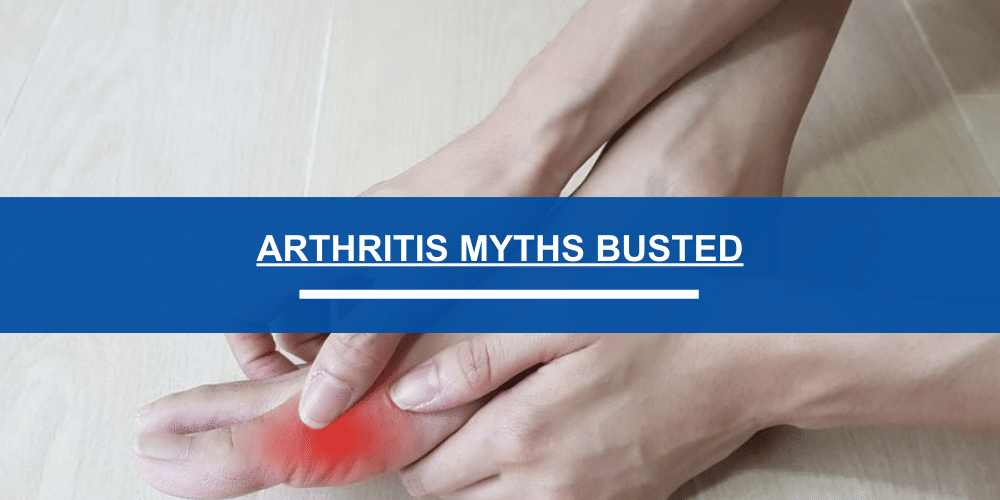Arthritis is one of the most common health conditions, yet it’s also one of the most misunderstood. From old wives’ tales to outdated advice, myths about arthritis often prevent people from getting the care they need. In this blog, we debunk some of the most common arthritis myths—so you can better manage your joint health.
Myth 1: Only Older Adults Get Arthritis
➡️ Fact: Arthritis doesn’t just affect seniors. In fact, arthritis can develop at any age, including in children and teens. According to the CDC, over 300,000 children in the U.S. have been diagnosed with juvenile arthritis. Genetics, autoimmune conditions, and even lifestyle factors can contribute to early-onset arthritis.
Myth 2: Cracking Your Knuckles Causes Arthritis
➡️Fact: This is a long-standing myth with no basis in science. Multiple studies have shown that habitual knuckle cracking does not increase your risk for arthritis. It may be annoying to others, but it’s not damaging your joints. If you’re experiencing joint pain or stiffness, the cause is more likely to be inflammation, age-related wear, or an underlying condition, not cracking your fingers.
Myth 3: You Should Avoid Exercise If You Have Arthritis
➡️ Fact: This couldn’t be further from the truth. Regular, low-impact exercise is one of the best things you can do to manage arthritis. Activities like walking, swimming, and stretching can improve joint flexibility, reduce stiffness, and enhance muscle strength around affected joints. Always consult your doctor before beginning a new fitness routine, especially if you’re recovering from surgery or managing chronic joint pain.
Myth 4: Arthritis Is Just Minor Joint Pain
➡️ Fact: Arthritis isn’t just about aches and pains. It’s a chronic condition that can lead to severe joint damage, limited mobility, and reduced quality of life if left untreated. There are over 100 types of arthritis, including osteoarthritis, rheumatoid arthritis, and psoriatic arthritis—each requiring a specific treatment approach.
The Takeaway
Understanding the truth about arthritis helps patients take control of their treatment and work closely with healthcare providers for long-term joint health. Whether you’re managing mild symptoms or recovering after surgery, debunking these myths is the first step to better care and a more active life.





